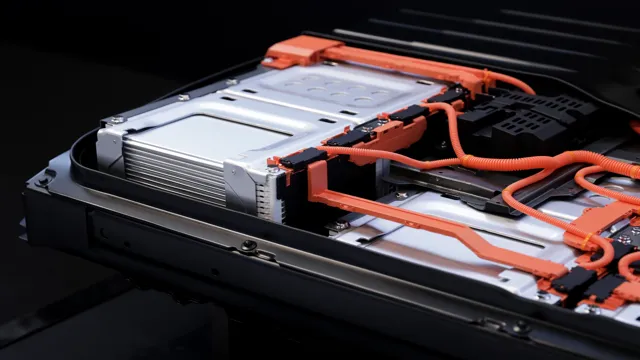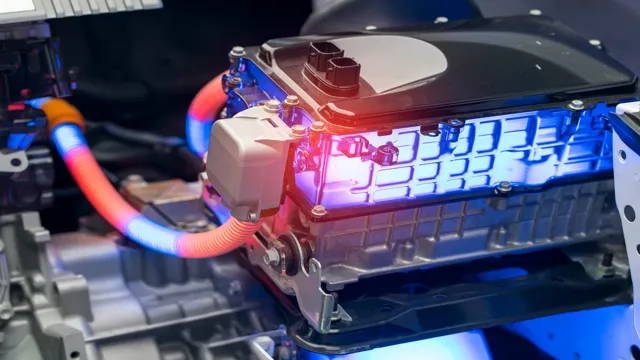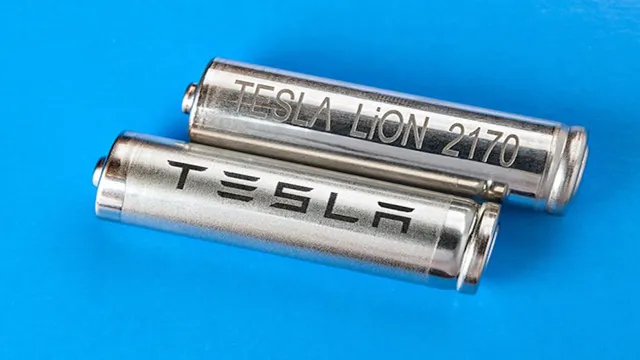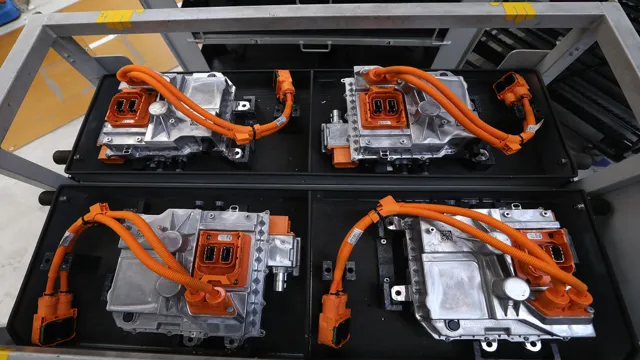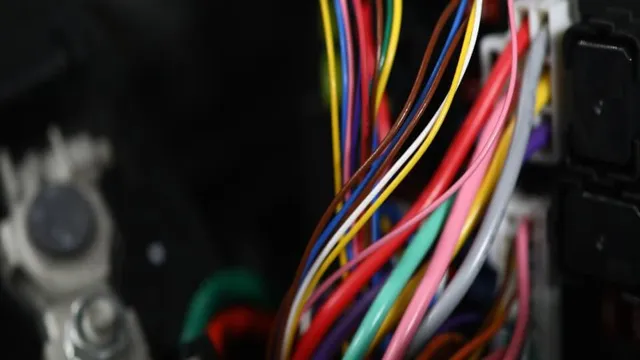Unlocking the Mystery Behind Battery Problems in Electric Cars: A Comprehensive Guide
Electric cars have been a breakthrough in the automotive industry. With zero emissions and lower costs for fuel and maintenance, they are becoming increasingly popular. However, like any other vehicle, electric cars are not perfect and are prone to several issues.
One of the most common challenges that electric car owners face is battery problems. The battery is the cornerstone of an electric car, as it stores the energy required to power the vehicle. When the battery fails, it causes a significant problem that may be costly to repair.
Battery problems in electric cars can manifest in several ways. One of the most common signs is decreasing range. As the battery gets older, it loses its ability to hold a charge, which results in a shorter driving range.
Battery-related issues can also cause performance problems, such as slow acceleration, reduced power, and slower charging times. These problems can significantly affect the car’s performance and its owner’s driving experience. But why do electric car batteries fail? There are several factors that contribute to battery problems, such as temperature, charging habits, and the age of the battery.
Extreme temperatures, whether hot or cold, can damage the battery’s cells and reduce its lifespan. Overcharging or charging too quickly can also damage the battery and reduce its efficiency. Additionally, the battery’s age is a key factor in its performance.
As the battery gets older, it loses its ability to hold a charge, and its overall performance declines. In conclusion, battery problems are a significant challenge for electric car owners. To avoid these issues, it’s crucial to maintain the battery correctly, such as following the manufacturer’s instructions and avoiding harsh driving conditions and extreme temperatures.
Understanding Battery Technology
Electric cars have become increasingly popular due to their environmental benefits and fuel efficiency. However, one of the biggest challenges facing the electric car industry is the issue of battery technology. While lithium-ion batteries have been the dominant battery type for electric cars, there have been concerns over issues such as lifespan, safety, and range.
Battery problems can arise due to various factors, including temperature, charging practices, and manufacturing faults. These problems can lead to reduced performance, increased maintenance costs, and in some cases, safety hazards for drivers. As the demand for electric cars continues to grow, finding solutions to battery technology issues will be crucial to the long-term success of the industry.
Manufacturers are now investing heavily in research and development to improve battery technology and reduce these problems.
Types of Batteries Used
When it comes to battery technology, there are various types of batteries used. One of the most common types of batteries is the lead-acid battery, which is widely used in cars. Meanwhile, lithium-ion batteries, which are lighter and more energy-dense compared to lead-acid batteries, are becoming more popular in electronic devices like smartphones and laptops.
Nickel-metal hydride batteries, on the other hand, are commonly used in hybrid vehicles. Another type of battery that is gaining popularity is the solid-state battery, which uses a solid electrolyte instead of a liquid one, making it safer and more stable compared to lithium-ion batteries. It’s important to understand the differences between battery types to know which one to use for specific applications.
So whether you’re driving a car or using electronic devices, having knowledge about battery technology can help you make informed decisions about your power needs.
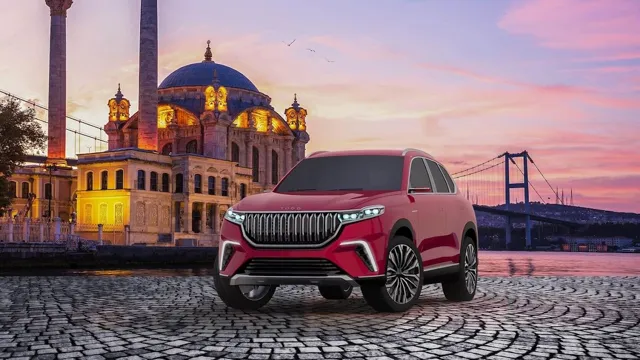
Battery Life and Degradation
When it comes to battery life and degradation, it’s important to understand the technology behind it. Batteries work by converting chemical energy into electrical energy, which is then used to power our devices. However, over time, the chemical reactions that power the battery can break down, leading to decreased performance and potentially shorter life spans.
This is known as battery degradation. The rate of degradation can vary depending on factors such as usage, temperature, and the type of battery. To prolong the life of your battery, it’s important to use it correctly and to avoid exposing it to extreme temperatures.
Additionally, some manufacturers have implemented technologies such as adaptive charging, which can help slow down the rate of degradation. Ultimately, understanding the technology behind batteries can help you get the most out of your devices and ensure that your battery lasts as long as possible.
Common Battery Issues
Battery problems are a common concern among electric car owners. One of the most significant issues is the reduced driving range that can occur when the battery degrades over time. This can happen due to a variety of factors, such as exposure to extreme temperatures, improper charging, and discharging habits.
Another common issue is the “memory effect,” where the battery gradually loses its ability to fully charge. However, with proper care and maintenance, these problems can be minimized, or even prevented altogether. Regularly monitoring and maintaining the battery is essential, including keeping it at a proper temperature range and avoiding overcharging or completely discharging it.
Additionally, proper driving habits, such as making smooth starts and avoiding extremely abrupt stops, can help prolong the life of the battery. By taking these simple steps, electric car owners can ensure that their batteries remain healthy and reliable, providing them with consistent performance and a hassle-free driving experience.
Reduced Range and Capacity
One of the most common battery issues that affect electric vehicles is reduced range and capacity. This occurs when the battery system’s performance starts to deteriorate, resulting in shorter driving ranges and decreased power output. The main culprit of this issue is battery aging, which happens over time as a result of frequent usage, temperature fluctuations, and charging habits.
To avoid this problem, it’s recommended to maintain the battery properly and adhere to the manufacturer’s recommended charging practices. You can also maximize the battery’s lifespan by avoiding extreme temperatures, not letting it drain completely, and avoiding overcharging. If you start to experience reduced range and capacity, it may be time to get your battery checked or replaced.
With proper care, an electric vehicle battery can last for many years and provide optimal performance throughout its lifespan.
Charging Problems and Efficiency
One of the most common battery issues that people encounter is charging problems. If you’ve ever plugged in your device to charge and it doesn’t seem to be charging, or it’s taking an unusually long time to charge, then you know how frustrating this can be. There are a few reasons why your device might not be charging properly.
Sometimes the charging port can become dirty or damaged, preventing the charger from making a proper connection. Other times, the battery itself might be damaged or have reached the end of its lifespan. In either case, it’s important to get your device looked at by a professional to determine the root cause of the issue.
Another issue that can impact the efficiency of your battery is heat. Batteries that get too hot can degrade more quickly, which can lead to reduced lifespan and performance. To ensure the best possible battery life, try to keep your device out of direct sunlight and avoid charging it in hot environments.
Heat and Cold Temperatures
When it comes to battery issues, one of the most common problems is related to heat and cold temperatures. Extreme temperatures can cause damage to the battery and affect its performance, leading to shortened lifespan and reduced capacity. High temperatures can lead to faster degradation of the battery, while cold temperatures can reduce its overall performance.
It’s important to avoid exposing your battery to extreme temperatures and if you must do so, take the necessary precautions to protect it. This could mean keeping your device inside a protective case or storing it in a cooler area. Remember, your battery is a sensitive component of your device that needs to be taken care of, so don’t let extreme temperatures cause any unnecessary harm.
Solutions for Battery Problems
Battery problems in electric cars can be a common issue experienced by many drivers. One solution to this problem is to invest in a higher-capacity battery. This will provide more power and longer ranges, minimizing the need for frequent charging.
Another solution is to be mindful of how you drive your electric car. Aggressive driving, such as sudden accelerations and hard braking, can significantly drain the battery. By driving more smoothly and using regenerative braking, you can extend the battery life and reduce your energy consumption.
Additionally, taking good care of your battery by keeping it at an optimal temperature, avoiding extreme heat or cold, and regularly maintaining it can help prevent battery problems. Ultimately, being proactive and informed about your battery’s performance and taking necessary steps to optimize it can help ensure that you avoid battery problems and get the most out of your electric car.
Proper Maintenance and Care
Maintaining your battery properly is essential for keeping it operating at peak performance. One of the most common problems with batteries is a lack of charge, which can occur for numerous reasons. To address this issue, regularly inspect your battery for signs of corrosion and clean it with a mixture of baking soda and water.
Additionally, ensure that your battery is properly secured and that the cables are tightly connected. If your battery still won’t charge, consider investing in a trickle charger, which will slowly and consistently charge your battery over a period of hours. By following these simple steps and promptly addressing any battery issues that occur, you can ensure that your battery remains in good condition and delivers reliable performance for years to come.
Upgrades and Replacements
When it comes to dealing with battery problems, upgrading or replacing your battery might be the best solution. If you notice that your device’s battery life is constantly decreasing, it could be time to make a change. Upgrading to a higher-capacity battery improves the overall lifespan of your device and increases the hours it can run on a single charge.
In some cases, replacing an old battery with a new one can even improve the performance and speed of your device. It’s important to choose the right battery for your device to avoid any compatibility issues or potential damage. Don’t let a dying battery hold you back, upgrade or replace it to get back up to speed in no time!
The Future of Electric Car Batteries
Battery problems have been a major hurdle for electric cars, with issues such as short range, long charging times, and high costs. However, significant developments are being made in the field of battery technology, giving hope for a future where electric cars can compete with their gasoline-powered counterparts. One such development is the use of solid-state batteries, which are significantly more efficient and durable than traditional lithium-ion batteries.
Other advances include integrating battery systems with solar panels and developing fast-charging technology. As battery technology progresses, electric cars will only become more accessible and cost-effective, making them a viable option for more and more consumers. While there are still challenges to overcome, the evolution of battery technology is driving the future of electric cars.
Conclusion
In the world of electric vehicles, battery problems are the oil spills of our time. While they may not have the same immediate physical impact on the environment, they can certainly have a significant impact on our wallets and the overall usability of our cars. But fear not, for just as we have found ways to mitigate the effects of oil spills, we are constantly innovating new ways to improve the battery technology of electric cars.
Whether it’s through better battery management systems, more efficient charging methods, or even advances in solid-state batteries, the future is bright for electric cars and their power sources.”
FAQs
What are the most common battery problems in electric cars?
The most common battery problems in electric cars include decreased range, slow charging, and battery degradation over time.
How long do electric car batteries typically last?
The lifespan of electric car batteries varies depending on factors such as usage, maintenance, and climate. However, most electric car batteries last for at least 8 years or 100,000 miles.
Can battery problems in electric cars be fixed or replaced?
Yes, battery problems in electric cars can often be fixed through maintenance, recalibration, or software updates. If the battery is irreparable, it can be replaced with a new one.
Are there any tips to prolong the lifespan of an electric car battery?
Yes, some tips to prolong the lifespan of an electric car battery include avoiding extreme temperatures, charging the battery regularly, and avoiding frequent fast charging. It is also important to follow the manufacturer’s maintenance recommendations.
